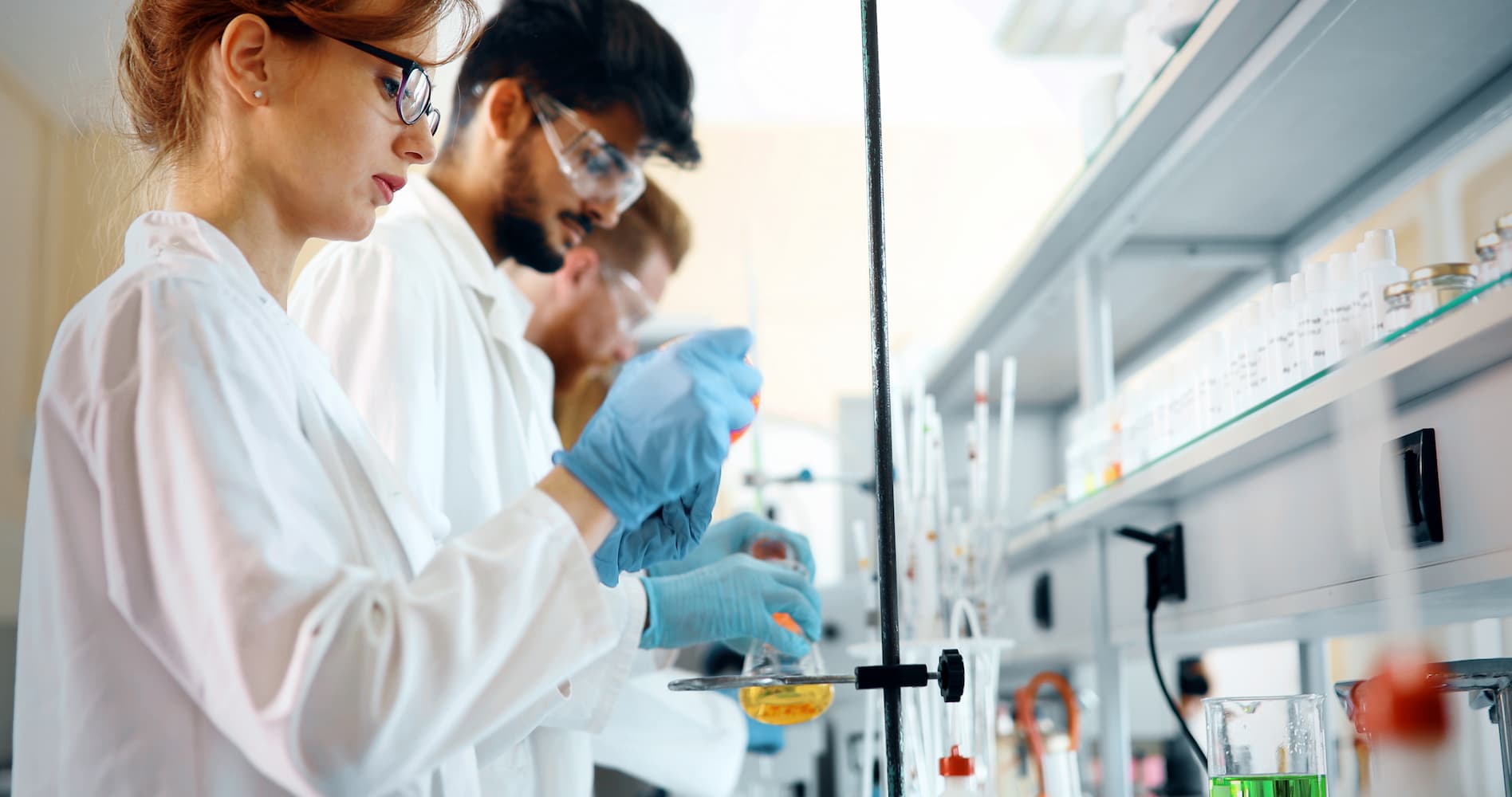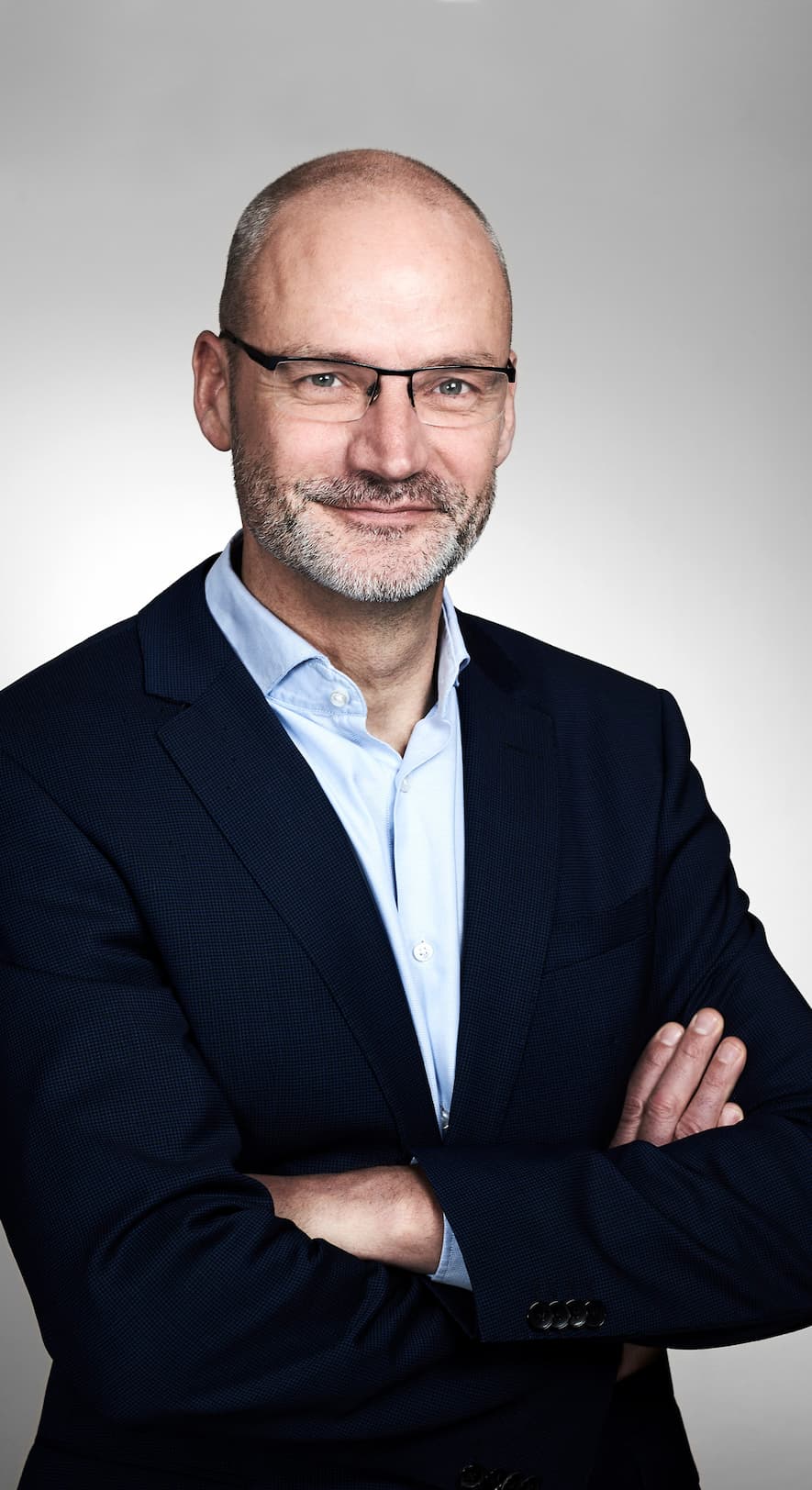An Interdisciplinary Approach to Cancer Research
life sciences

life sciences
No two cancers are identical; each one develops in its unique way. A comprehensive understanding of the disease is crucial to developing better treatment options. In this article, we will explore Saturn3, a research network consisting of universities and institutions which aim to leverage personalised treatment and the immune system to overcome all kinds of cancers. This endeavour could potentially open doors to entirely new therapeutic approaches in the future.life sciencespharmaceuticals
Cancers rank among the most common causes of death worldwide. One reason is that virtually every cancer is unique, and each cancerous growth never stops growing if left untreated. But researchers from a wide range of institutions now share an ambitious goal: Together, they want to unlock the secret of why cancer constantly grows and transforms itself.
“The initial idea behind our project came up spontaneously during a phone conference with university professor Jens Siveke and cancer researcher Andreas Trumpp,” Wilko Weichert recalls. Weichert himself is Professor of Pathology at the Technical University of Munich (TUM).
“We hit on the idea of a program that would decode why some tumours fail to respond to certain treatments from the outset, and why others stop responding during the course of treatment,” Professor Weichert – a tissue development specialist – explains. “We also wanted to find a way to ultimately destroy tumours.”
The idea immediately captured his imagination as he recognised the potential for this research question: Many of the leading cancer specialists across all kinds of disciplines in Germany are now involved in the Saturn3 project.
“We all already knew each other, so pooling our capabilities was the obvious thing to do,” Weichert says. He added that the sheer breadth of expertise represented by the participants made it possible to cover the entire chain of research – from theory to empirical study and clinical trials to the development of new therapeutic strategies.

Professor Wilko Weichert (52) coordinates the interdisciplinary Saturn3 research network. He joined the National Centre for Tumour Diseases (NCT) in 2010 and has taught pathology at the Technical University of Munich (TUM) since 2015. Alongside prominent roles with national pathology and research institutes, Weichert also serves as adviser to the European Medicines Agency (EMA).
The team’s objective is to precisely observe and understand how a tumour develops and spreads over time, especially during a course of treatment. “We do not look solely at the primary tumour, as is often the case today. We also focus on local heterogeneity, i.e. situations where there are an exceptionally large number of different tumour cells that in turn can transform themselves in completely different ways,” Weichert explains.
The Saturn3 team is thus seeking to prevent tumours from changing and metastasising: Cancers should have no chance of taking a route that will spare them the treatment. This is true especially in cases of pronounced heterogeneity.
The team concentrates its work on three types of cancer that are among the most deadly in many countries: colon, pancreatic and aggressive breast cancers. As things stand, all three are still difficult to treat and affect very large numbers of people.
“Tumours are like living entities. They evolve at a stunning pace,” the cancer specialist says. “Our research looks at how to address literally every element of a tumour at the same time and in the right way.” If the team succeeds in its goal, it might be possible not only to prolong the life of patients but even to completely heal them of this disease.
The researchers’ project is on the very cutting edge of personalised medicine. Their approach is based on the key-and-lock principle that seeks to find individual and more efficient combinations of medication and therapy for each person. Patients should from the outset be spared the hassle of any approaches that do not work.
Two things are needed to personalise cancer treatment: First, the lock has to be defined, which means that an exact understanding of the tumour is needed. Only then can you look for the key, i.e. a treatment which works.
Molecular characteristics can be catalogued to define the lock. This is done, for example, by taking a tumour tissue sample to analyse its genome or its protein profile. Imaging techniques are another option: In this case, the tumour is examined not just once, but regularly in the course of the therapy.
The second step – the treatment itself – currently constitutes the major challenge. “We are already fairly good at characterising the lock, but often we don’t find the right key. Nor can we as yet adequately determine what triggers the growth of the tumour at all times,” Professor Weichert adds. “We need a treatment that also factors in the molecular changes. That could involve a combination of therapeutic methods which could vary depending on the development of the tumour. In some cases, a suitable treatment has yet to be developed.”
In the personalised medicine space, what is known as immunotherapy is gaining ground especially in oncology. Essentially, a person’s immune system is utilised to attack tumours. This system can be upgraded artificially by extracting and modifying immune cells.
“An alternative approach is to create new interaction spaces between the tumour and the immune system, supporting the immune system’s efforts to fight a tumour,” Weichert explains.
What are referred to as checkpoint inhibitors are administered to patients. These medicines block mechanisms which tumours develop to deactivate or hide from the immune system.
“We know that tumours with a high mutation load respond well to treatment,” the cancer expert continues. “And it seems that new antigens created by mutations play a part here. The immune system recognises them as foreign bodies and thus instructs the immune cells to attack the tumorous cells.”
Immunotherapy also has a good track record in combatting tumours which contain proteins whose purpose is to hide the cancer from the immune system. Under the aegis of Saturn3, the researchers use a blend of established methods and leading-edge technology to interpret the findings:
“Alongside the advanced technology we use to take and process tissue samples, we use a variety of methods to analyse the genomes and other biological properties of tumours. That includes DNA and mRNA sequencing, pinpointing methylation patterns and conducting broad-based protein analytics,” Weichert says. “In this way we can piece together a full picture of the biology of tumorous developments.”
To detect additional aspects that may lie hidden in the complexity of the data, the Saturn3 team also calls on the assistance of artificial intelligence (AI). The aim here is to better understand molecular changes that are of relevance to the tumour.
“Taking our findings, we then have to develop examination methods which can be applied across large numbers of patients.”
Personalised medicine and immunotherapeutic approaches are closely related to the trend of stepping up interdisciplinary work – in ‘tumour boards’, for example, where all relevant disciplines have a hand in deciding on the further treatment of a case.
Saturn3 has access to many of these tumour boards. From them, the team also recruits patients suffering from tumours on which the cancer research programs of the future will concentrate.
The insights available today do not yet translate directly into cures for the current patients. “But they will help our patients five to ten years from now,” Weichert insists. “And for many cancer patients, merely knowing this often makes it very important to take part in our program. Their participation today will give other people who are diagnosed with cancer a better chance of being treated and cured in the future.”
It is still early days for the research network. The initiators are still in the process of building the infrastructure and designing chains of investigation via which it will later be possible to process the data collected from patients. Understanding and characterising tumours is the goal set for the first year.
The hope is that, in the years ahead, new therapeutic measures will be developed that can be made available to large numbers of patients. The challenge is therefore to find methods that work for as many people as possible.
“We are, for example, working on imaging processes as well. So we don’t have to focus exclusively on taking tissue samples. Instead, we can combine both techniques: imaging and molecular tissue analysis,” Professor Weichert says, before underscoring the point: “Working on different kinds of tumours increases the probability of finding something that can very quickly be applied in practice.”
Thanks to the interdisciplinary approach pursued by Saturn3, it is hoped that principles identified as being relevant to therapeutic measures can be used for other tumours, too. “As a result, we can transition more quickly from theory to practice in order to help the sufferers.”
Author: Jonathan Fasel
This article was originally published in German on https://www.brunel.net/de-de/blog/die-zukunft-der-krebsforschung